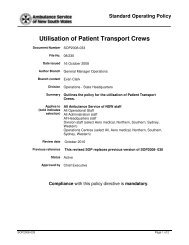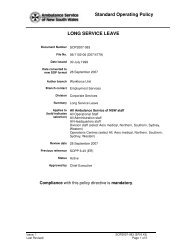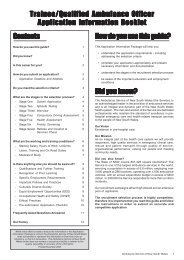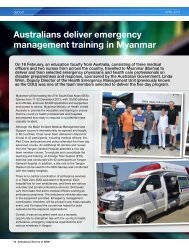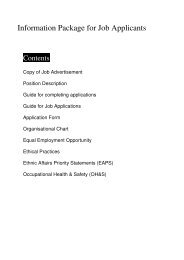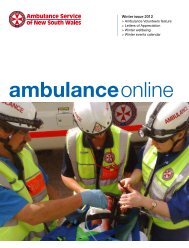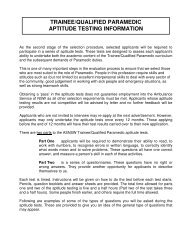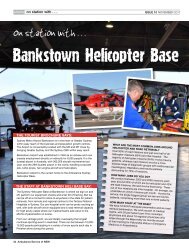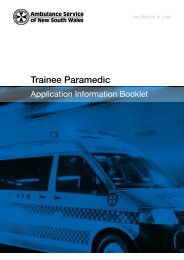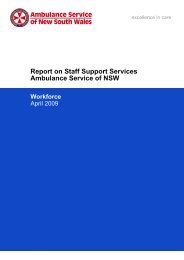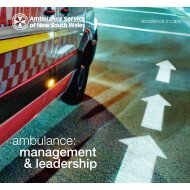Professional Conduct Guidelines - B. Misconduct, October 2006
Professional Conduct Guidelines - B. Misconduct, October 2006
Professional Conduct Guidelines - B. Misconduct, October 2006
You also want an ePaper? Increase the reach of your titles
YUMPU automatically turns print PDFs into web optimized ePapers that Google loves.
• dismissal from the Ambulance Service,<br />
• directing the employee to resign, or to be allowed to resign, from the<br />
Ambulance Service within a specified time, if the employee is on probation—<br />
annulment of the employee’s appointment,<br />
• except in the case of a senior executive officer—reduction of the employee’s<br />
classification or position,<br />
• a caution or reprimand.<br />
Disciplinary process means the process by which allegations of misconduct are dealt<br />
with as a disciplinary matter.<br />
Remedial action means the options defined at section 15(1) of the Regulation to deal<br />
with an allegation of misconduct as a remedial matter, namely:<br />
• counselling,<br />
• training and development,<br />
• monitoring the employee’s conduct or performance,<br />
• implementing a performance improvement plan,<br />
• the issuing of a warning to the employee that certain conduct is unacceptable<br />
or that the employee’s performance is not satisfactory,<br />
• transferring the employee to another position in the Ambulance Service that<br />
does not involve a reduction of the employee’s classification or position,<br />
• any other action of a similar nature.<br />
The “remedial” process means to adopt the remedial method with respect to the<br />
management of the matter, and to deal it by utilising one of the above outcomes.<br />
Unsatisfactory professional conduct in relation to an ambulance officer includes any<br />
of the following ( Clause 15 , Part 3 )<br />
• any conduct that demonstrates that the knowledge, skill or judgment<br />
possessed, or care exercised, by the ambulance officer in clinical practice is<br />
significantly below the standard reasonably expected of an ambulance officer<br />
of an equivalent level of training or experience<br />
• the ambulance officer’s failure without reasonable excuse to comply with a<br />
direction by the Ambulance Service to provide information with respect to a<br />
complaint under Part 3 of the Ambulance Services Regulation 2005 against<br />
the ambulance officer<br />
• any other improper or unethical conduct relating to the ambulance officer.<br />
6 <strong>Misconduct</strong><br />
<strong>Misconduct</strong> is specifically defined in the Regulation to include, but not be limited to<br />
the following:<br />
3



